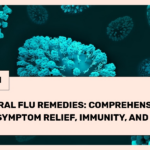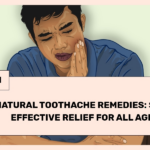The common cold and flu are two of the most prevalent illnesses that affect people worldwide. These viral infections can cause a range of symptoms, including fever, chills, coughing, congestion, and sore throat.
While there is no cure for these conditions, several natural remedies exist to help alleviate their symptoms. One such remedy comes from DXN, a leading producer of health and wellness products in Malaysia.
The company’s line of natural remedies has gained popularity amongst those seeking alternative treatments for cold and flu symptoms. In this article, we will provide an overview of some of DXN’s top natural remedies for managing colds and flus, along with evidence-based research supporting their efficacy.
By familiarizing ourselves with these remedies, we can better equip ourselves to manage the discomfort caused by these common illnesses naturally.
Understanding The Common Cold And Flu
The common cold and flu are viral infections that affect the respiratory system. These illnesses can cause a variety of symptoms, such as fever, coughing, sneezing, sore throat, headaches, body aches, and fatigue.
The common cold is caused by several types of viruses, including rhinovirus, which accounts for 30-50% of all cases. Meanwhile, the flu is caused by influenza virus A or B.
Prevention strategies for both conditions include good hygiene practices like washing hands frequently with soap and water for at least 20 seconds and avoiding close contact with sick people. Unfortunately, there are still some common misconceptions about these illnesses that need to be addressed.
For instance, many believe that going outside in cold weather without adequate clothing causes catching a cold or flu. However, this is not true since these illnesses are caused by viruses rather than weather exposure. Understanding the nature of these viral infections will help individuals take appropriate preventive measures while also correcting any misunderstandings associated with them.
Moving on from understanding the common cold and flu to exploring natural remedies that may alleviate their symptoms shows promise toward addressing concerns surrounding traditional treatments’ side effects.
The Benefits Of Natural Remedies
The use of natural remedies for cold and flu symptoms has been gaining popularity in recent years. Many people are turning to these alternatives because they believe that they are safer, more effective, and have fewer side effects than traditional medications.
In this section, we will explore the benefits of using natural remedies for cold and flu symptoms. Firstly, natural remedies may provide relief without harmful side effects. Unlike prescription drugs which often come with a long list of potential adverse reactions, most natural remedies do not cause any unwanted side effects.
Furthermore, many natural remedies contain ingredients that work synergistically to boost the immune system, reduce inflammation, and alleviate pain or discomfort associated with cold and flu symptoms. To further emphasize the Benefits and Effectiveness of natural remedies for colds and flus, consider the following:
- Natural remedies help strengthen your immune system naturally.
- They often include anti-inflammatory properties to relieve soreness.
- You can avoid chemical-laden pharmaceutical products that may cause negative side-effects.
In conclusion, it is evident that there are several benefits to using natural remedies when managing cold and flu symptoms. Not only can you avoid the negative side effects commonly associated with prescription medication but also improve overall health by strengthening your immune system through the use of all-natural ingredients.
The next section will delve into dxn’s philosophy regarding health and wellness approach as an organization committed to providing high-quality natural products to its customers worldwide.
Dxn’s Philosophy And Approach To Health And Wellness
The benefits of natural remedies cannot be overstated. Natural remedies have been in use for centuries and are rooted in traditional medicine practices worldwide. They offer numerous advantages over conventional treatments, such as being gentler on the body and having fewer side effects.
Dxn’s holistic approach is based on Traditional Chinese Medicine principles that aim to restore balance within the body by addressing the root cause of an illness rather than just treating its symptoms. This approach recognizes that a person’s physical health is influenced by their mental, emotional, and spiritual well-being. Therefore, Dxn places great emphasis on promoting overall wellness through healthy lifestyle habits, stress reduction techniques, and natural supplements that support the body’s natural healing processes.
By focusing on prevention and maintaining optimal health rather than solely treating illnesses after they arise, Dxn believes that individuals can achieve lasting vitality and longevity.
Moving forward into dxn’s top natural remedies for cold and flu symptoms, we will explore some of their most effective products derived from nature itself.
Dxn’s Top Natural Remedies For Cold And Flu Symptoms
Cold and flu are common viral infections that affect millions of people worldwide. While there is no cure for these illnesses, you can manage the symptoms with some natural remedies. DXN offers a range of natural products that help alleviate cold and flu symptoms, including herbal teas and essential oils.
Herbal teas have been used for centuries to treat various ailments, and they are an excellent remedy for colds and flu. Some of the most effective herbal teas include:
- Ginger tea, which relieves coughing
- Echinacea tea, which boosts immunity
- Peppermint tea, which treats sore throats
- Chamomile tea, which relieves coughing
- Lemon balm tea, which helps reduce fever
These teas contain antioxidants that boost your immune system and provide relief from coughing, congestion, sore throat, and other common cold symptoms. Essential oils like eucalyptus oil or lavender oil also help relieve congestion when added to a diffuser or applied topically on the chest area.
In summary, managing cold and flu symptoms naturally is possible thanks to the vast array of options available in today’s market. Taking herbal teas like ginger or chamomile will help soothe coughing while consuming eucalyptus or lavender essential oils through aromatherapy has proven helpful in relieving congestion symptoms. There are plenty of choices out there; it is up to individuals what works best for them!
The next section covers one particularly promising treatment option: ganoderma lucidum mushrooms.
The Power Of Ganoderma Lucidum
Ah, yes – the elusive cure for cold and flu symptoms. Many have tried to find it, but few have succeeded. Fear not, dear reader, for we may have found a solution in Ganoderma lucidum.
This mushroom has been used in traditional Chinese medicine for centuries and is known for its potential health benefits. Ganoderma lucidum contains bioactive compounds such as polysaccharides and triterpenes that are believed to provide various health benefits including immune system support and anti-inflammatory effects.
Research also suggests that this mushroom may help alleviate some symptoms of upper respiratory tract infections like coughing and sore throat. However, it’s important to note that more research is needed to fully understand the extent of these benefits and determine the appropriate dosage of Ganoderma lucidum for specific conditions.
The Role Of Vitamin C And Zinc
Vitamin C has been linked to a range of health benefits, including its role in supporting the immune system and its antioxidant properties.
Zinc is an essential mineral that plays a role in many enzymatic processes and is important for immunity and wound healing.
Combining Vitamin C and Zinc may help enhance the immune system and alleviate cold and flu symptoms.
Vitamin C Benefits
Exploring the advantages and where to find vitamin C, we discover that it is a powerful antioxidant that helps protect cells from damage caused by free radicals.
It also plays an important role in the synthesis of collagen, which is essential for healthy skin, bones, and connective tissue.
Vitamin C benefits include its ability to boost the immune system and reduce the severity and duration of colds and flu symptoms.
While citrus fruits are well-known sources of vitamin C, other good sources include kiwi fruit, strawberries, papaya, broccoli, Brussels sprouts, and red bell peppers.
Incorporating these foods into your diet can help ensure you’re getting enough vitamin C to support your overall health.
Zinc Benefits
Moving on to another crucial nutrient, let’s discuss the benefits of zinc in supporting overall health.
Zinc is an essential mineral that plays a vital role in many bodily functions, including immune system function, wound healing, and DNA synthesis.
It also helps maintain healthy skin and supports normal growth and development during pregnancy, childhood, and adolescence.
Zinc deficiency can lead to symptoms such as delayed wound healing, impaired taste and smell senses, hair loss, diarrhea, and poor appetite.
The recommended daily zinc dosage for adults ranges from 8-11 mg per day for women and 11-12 mg per day for men.
In the next section, we’ll explore how vitamin C and zinc work together to support our immune system and promote optimal health.
Combining Vitamin C And Zinc
The combination of vitamin C and zinc has been a popular supplement choice for many individuals due to their potential immune-boosting properties.
Vitamin C is an antioxidant that helps protect the body against free radicals, while zinc plays a crucial role in immune system function.
When taken together, these nutrients may enhance each other’s benefits, promoting overall health and well-being.
Supplement dosage for vitamin C and zinc varies depending on individual needs and circumstances.
However, it is generally recommended that adults aim for 75-90 mg of vitamin C per day and 8-11 mg of zinc for women and 11-12 mg for men daily.
While both vitamins are essential for optimal health, taking too much can result in potential side effects such as upset stomach or diarrhea.
If you prefer not to take supplements, alternative sources of vitamin C include citrus fruits, berries, kiwi fruit, peppers, and broccoli.
You can also find natural sources of zinc in foods like oysters, beef, chicken, beans, nuts, whole grains, dairy products, and fortified cereals.
By combining vitamin C and zinc through either supplementation or a balanced diet rich in nutrient-dense foods, you may be able to support your immune system more effectively than relying on one nutrient alone.
Echinacea’s Immune-Boosting Properties
Echinacea is a popular herb that has been used for centuries to boost the immune system and alleviate cold and flu symptoms.
Echinacea purpurea, one of the most commonly used species of echinacea, contains several active compounds such as alkamides, polysaccharides, and caffeic acid derivatives which have immunomodulatory effects.
These compounds are believed to enhance the function of white blood cells known as macrophages and natural killer cells, which play an important role in fighting off infections.
Despite its popularity as a natural remedy for colds and flu, there is still limited evidence on the effectiveness of echinacea in preventing or treating these illnesses.
It is also important to note that like any other supplement or medication, echinacea can cause side effects including upset stomach, dizziness, headache, allergic reactions, and interaction with certain medications.
Furthermore, there is no consensus on optimal dosages or duration of use since different studies have used varying doses ranging from 300mg to 6g per day.
Therefore it is recommended that individuals consult their healthcare provider before using echinacea especially if they have underlying medical conditions or are taking prescribed medications.
The soothing effect of honey and lemon will be discussed in the next section about natural remedies for cold and flu symptoms.
The Soothing Effect Of Honey And Lemon
Honey and lemon are two natural ingredients that have been used for centuries to alleviate cold and flu symptoms. These remedies work by helping to soothe sore throats, reduce coughing, boost the immune system, and promote overall healing.
Honey has antibacterial properties that can help fight off infection while also providing a soothing effect on the throat.
Lemon contains high levels of vitamin C which helps to strengthen the immune system.
The combination of honey and lemon is considered one of the most effective treatments for colds and flu. To make this remedy, mix one tablespoon of honey with the juice from half a lemon in a cup of hot water. Drink this mixture several times a day until your symptoms improve.
Another option is to create a syrup by mixing equal parts honey and lemon juice together in a jar. Take one teaspoon every few hours as needed.
Drinking warm fluids can help soothe sore throats, and homemade syrups made with honey and lemon may provide relief from respiratory issues.
The Importance Of Rest And Hydration
After soothing your sore throat with honey and lemon, it’s important to remember that rest is an essential component of healing from the common cold or flu. Lack of sleep can weaken the immune system, making it more difficult for the body to fight off harmful viruses. In fact, a study published in the Archives of Internal Medicine found that individuals who slept less than 7 hours per night were three times more likely to develop a cold compared to those who slept 8 hours or more.
In addition to getting enough rest, staying hydrated is also crucial when it comes to combating cold and flu symptoms. Drinking plenty of fluids helps keep mucus membranes moist which can prevent irritation in the nose and throat. Adequate hydration also aids in flushing out toxins from the body, allowing the immune system to focus on fighting off infection instead of battling dehydration.
It’s recommended that adults drink at least eight glasses (64 ounces) of water per day but this number may vary depending on factors such as activity level and climate conditions. Remembering to prioritize both rest and hydration during illness can help speed up recovery time and reduce overall discomfort.
Moving beyond traditional remedies like honey and lemon, there is a growing body of evidence-based research supporting DXN’s natural remedies for cold and flu symptoms. These products utilize ingredients like ganoderma lucidum (also known as reishi mushroom), which has been shown in studies to have immunomodulatory effects by regulating white blood cells involved in fighting infections. Other ingredients like cordyceps sinensis have anti-inflammatory properties that can help soothe swollen airways associated with respiratory illnesses.
By incorporating these natural remedies into your routine along with proper rest and hydration, you may be able to recover faster from colds and flus while simultaneously boosting your overall health and wellness.
Evidence-Based Research Supporting Dxn’s Natural Remedies
There is growing interest in the use of natural remedies for cold and flu symptoms, particularly as concerns about the side effects of conventional medications continue to mount. In recent years, there has been a surge in research aimed at investigating the effectiveness of various natural remedies for these common ailments.
One such remedy that has gained attention is DXN’s line of natural products, which are formulated using traditional medicinal herbs like Ganoderma lucidum (reishi mushroom), Cordyceps sinensis (caterpillar fungus), and Andrographis paniculata (green chiretta). While some studies have shown promising results regarding their efficacy, it should be noted that research limitations exist.
Although many natural remedies are generally considered safe when taken as directed, there is still the potential for adverse side effects to occur. For instance, some individuals may experience allergic reactions or digestive issues after taking certain herbal supplements.
Additionally, because natural remedies are not regulated by the FDA in the same way that pharmaceutical drugs are, it can be difficult to know exactly what ingredients they contain or whether they have been contaminated with harmful substances. Therefore, while evidence-based research suggests that DXN’s line of natural remedies may offer relief from cold and flu symptoms, it is important to consult with a healthcare professional before starting any new treatment regimen.
Frequently Asked Questions
Can Natural Remedies For Cold And Flu Symptoms Be Used As A Substitute For Medical Treatment?
The use of natural remedies for cold and flu symptoms as a substitute for medical treatment has both pros and cons.
While some may argue that natural remedies are effective in alleviating symptoms, others believe that they do not address the root cause of the illness and could potentially delay proper medical care.
Safety is also a concern when using natural remedies, as many herbs and supplements can interact with prescription medications or have adverse effects on certain individuals.
It is important to weigh the effectiveness and safety of natural remedies against traditional medical treatments before deciding on a course of action for treating cold and flu symptoms.
As with any medical decision, it is crucial to consult with a healthcare professional before starting any new treatment regimen.
Are There Any Natural Remedies That Should Be Avoided For Certain Individuals, Such As Pregnant Women Or Those With Allergies?
Herbal alternatives have gained popularity as natural remedies for cold and flu symptoms, but safety concerns exist for certain individuals such as pregnant women or those with allergies.
It is important to note that just because a remedy is natural does not mean it is completely safe for everyone to use without caution.
For instance, echinacea may be effective in reducing the duration and severity of colds, but it should be avoided by people with autoimmune diseases.
Similarly, licorice root can help soothe sore throats but consuming high amounts could lead to elevated blood pressure levels.
Therefore, when considering herbal alternatives for cold and flu symptom relief, it is crucial to consult a medical professional before starting any treatment plan.
How Long Does It Typically Take For Natural Remedies To Alleviate Cold And Flu Symptoms?
When it comes to natural remedy effectiveness for alleviating cold and flu symptoms, the duration of relief may vary depending on the individual’s immune system response.
However, certain recommended natural remedies for specific symptoms have been found to provide quick relief.
For instance, ginger tea can help alleviate sore throat and cough while honey has antibacterial properties that can soothe a persistent cough.
Echinacea supplements are also known to shorten the duration of colds by stimulating the immune system.
It is important to note, however, that natural remedies should be used with caution in pregnant women or those with allergies as they may cause adverse reactions.
Overall, incorporating these recommended natural remedies into one’s daily routine may provide some relief from cold and flu symptoms.
Are There Any Specific Dosages Or Instructions For Using Dxn’s Natural Remedies?
Proper usage of natural remedies is essential to ensure their benefits and effectiveness in treating cold and flu symptoms.
For example, taking too much echinacea can actually worsen the symptoms or cause negative side effects such as nausea or dizziness.
Therefore, it is important to follow specific dosages and instructions for using DXN’s natural remedies.
Proper usage not only ensures safety but also maximizes their potential healing properties.
As a medical writer/researcher, it is crucial to inform the audience about the importance of following proper usage guidelines for natural remedies to achieve optimal health outcomes.
Can Natural Remedies Be Used Preventatively To Avoid Getting Sick In The First Place?
Natural remedies have been used throughout history to prevent and treat various illnesses.
There are several benefits of using natural preventatives, including cost-effectiveness, minimal side effects, and a holistic approach to healing.
Types of natural preventatives include herbs such as echinacea and elderberry, supplements like vitamin C and probiotics, and lifestyle habits such as exercise and stress management.
While there is limited scientific evidence on the effectiveness of these methods in preventing colds and flu, they may still be worth considering for those looking for alternative approaches to staying healthy.
As with any treatment or preventative measure, it is important to consult with a healthcare professional before use.
Conclusion
Natural remedies can be an alternative treatment for cold and flu symptoms, but they should not be used as a substitute for medical treatment. It is important to note that some natural remedies may not be suitable for certain individuals such as pregnant women or those with allergies.
Furthermore, the effectiveness of these remedies varies from person to person, and it may take different durations before relief is felt. DXN’s natural remedies offer various products that cater to specific needs. The dosage and instructions vary depending on the product, so it is essential to follow them carefully.
Additionally, preventative measures such as maintaining good hygiene practices and boosting one’s immune system through healthy lifestyle habits can help avoid getting sick in the first place. While some people have reservations about using natural remedies compared to conventional medicine, incorporating them into one’s health routine has its benefits.
Natural remedies provide a holistic approach by utilizing plant-based ingredients that are gentler on the body than synthetic medications. They also address underlying causes rather than just treating symptoms. Thus, giving DXN’s natural remedies a try could lead to improved overall wellness without harmful side effects.
Some readers may question the validity of using natural remedies instead of seeking medical attention immediately when experiencing severe cold and flu symptoms. However, it is crucial to remember that self-treatment should only be considered for mild cases. In severe cases or if symptoms persist after trying natural remedies, seeking professional medical advice remains necessary.







